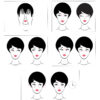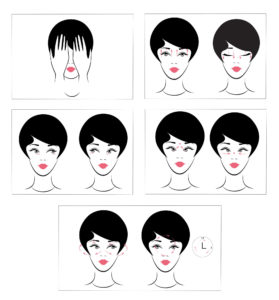
Your Eyes Might Need Therapy
When it comes to correcting vision, most of us picture glasses, contacts, or even surgery. However, some problems may need a slightly different technique. Do your eyes need therapy?
A growing movement of optometrists has begun to dabble extensively in vision training – a branch of alternative medicine that includes eye exercise and tailored eye exams.
Keep reading to learn what vision therapy can do for you and your child’s vision.
Behavioral Optometry and Childhood Vision
When it comes to addressing vision problems, not everyone wants to turn to medication or glasses or contacts. Luckily, there’s now another possible option for treating vision issues. The biggest growth of alternative optometry has come in the form of behavioral optometry, primarily aimed at children.
Actually, a larger category that contains vision training, behavioral optometry is an occasionally chaotic collection of therapeutic methods – some of which work, some of which don’t.
So here’s the part of eye therapy that works: eye exercises and eye exams. Behavioral optometrists have long been among the most vocal proponents of the widespread adoption of eye exercise routines. These largely come with research pedigrees and have a wealth of empirical evidence behind them.
Vision exercises have shown particular value in treating convergence disorders, which occur when a child’s eyes fail to coordinate properly, making it difficult to focus on near-field objects. Untreatable with glasses or contacts, convergence disorders respond well to eye exercises, making school a much easier, more comfortable experience for children.
Eye exams are similarly valuable. Compulsory, in-school exams have a tendency to over-focus on visual acuity and often let other, potentially serious vision disorders pass undetected.
Convergence disorders are a classic example. As convergence disorders are only apparent when a child is forced to track a moving target, they require more than a traditional eye chart to notice. And, as mentioned, given that behavioral optometrists already have the means to treat them, this class of disorders as a whole is one well covered by the profession.
This is alll well and good, but behavioral optometry has classically veered off that beaten path towards less tested methods. Among these are the use of so-called “yoked prisms.” These devices shift light instead of focusing it and have no known basis in scientific fact.
Optometry and Vision Training
 Fortunately, a new breed of behavioral optometrist seems to be springing up. These practitioners are often fully certified as optometrists, a crucial difference to make, as behavioral optometrists don’t have a central regulating body and have no real guarantee of quality.
Fortunately, a new breed of behavioral optometrist seems to be springing up. These practitioners are often fully certified as optometrists, a crucial difference to make, as behavioral optometrists don’t have a central regulating body and have no real guarantee of quality.
However, optometrists do. These medical professionals are certified by the states in which they practice and are qualified to give eye exams, fit patients for corrective lenses and provide a wide range of primary vision care.
Many of these practitioners have also begun to add vision training to their offered services. Eye exercises and comprehensive exams – the two behavioral optometry methods we are happiest to support, have both figured heavily into these new programs.
Why Now?
The growing popularity of eye exercise programs is certainly one reason. Another is the current context of childhood eye health.
Because so many people are using digital devices these days, especially children, syndromes like digital eye strain are becoming more common than ever. Luckily, even the American Optometric Association now agrees that vision therapy can help reduce the effects of digital eye strain. Their research has found that exercises can help train your brain and eyes to work together more effectively. This will reduce the effects of too much screen time on your child’s eyes.
Of course, you should also do your best to reduce the amount of screen time your child experiences. Too much can still be damaging, even if you incorporate vision therapy into their daily routine.
Is Vision Therapy for Your Child?
It depends. Some aspects of current vision therapy are definitely viable for childhood eye care; some are not.
One thing absolutely worth scheduling is a comprehensive eye exam from a licensed optometrist. As mentioned, in-school exams frequently miss issues unrelated to visual acuity. A full exam can help identify these issues. It will give you more information on steps to take to help your child find vision solutions.
Beyond this, things get a little hazier. If you’ve taken care to work with an actual optometrist, you’ll likely hear a little bit about orthoptic vision therapy – in a nutshell, eye exercises.
Eye Exercises
In some cases, they have proven value in children. For example, if your child has been diagnosed with the above-mentioned convergence insufficiency – caused by eyes being unable to turn inward to focus on near-field objects or work – then, going by standards set by the American Association for Pediatric Ophthalmology and Strabismus, there’s some value in moving ahead. Orthoptic therapy has been shown to have some value in this particular childhood condition.
If, on the other hand, they bring up behavioral vision therapy, you may want to reconsider. Behavioral therapy heavily relies on a proposed link between reading and learning disabilities, such as dyslexia, and eyesight.
While this might appear to make sense on the surface, in reality, this claim is too good to be true. A review of many studies published in children cautions providers from treating more than convergence issues with vision therapy This is because some proponents of this type of therapy will tell you that there is only one cause, and therefore only one cure, for issues that require a therapeutic approach. In reality, scientists need to conduct more conclusive clinical trials before anyone can know how effective this branch of vision therapy is for sure.
Conclusive Evidence?
There’s plenty of room for debate on this. Scientists feel wary of this branch of therapy because of the lack of conclusive evidence to support it. On the other hand, it would be an enormous stretch of the imagination to call it a proven method. With so much added visual stress these days, vision therapy could help bring some much-needed relief to our eyes.
“Fast track” or “intensive” vision training programs should be treated with particular care. Many of these offer guarantees on improved eyesight and academic performance. As far as we can tell, these claims don’t have much basis in reality. However, some types of vision therapy can be helpful – the best thing to do is do your research!
Our Rebuild Your Vision Ocu-Plus Formula Contains All 17 Vitamins, Minerals, and Herbal Supplements to Improve Your Eye Health!




Leave Your Reply